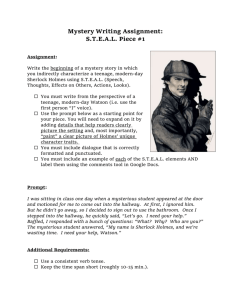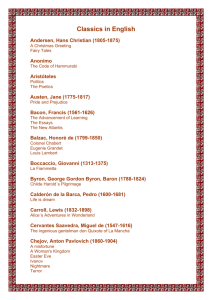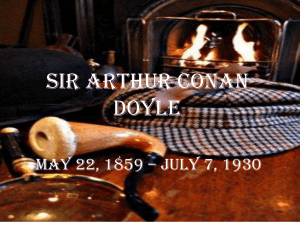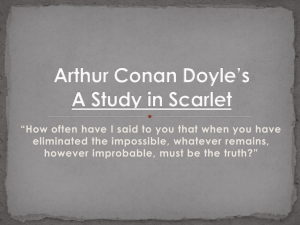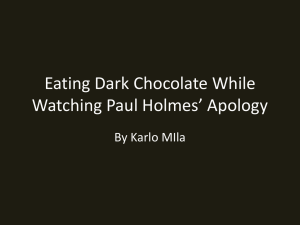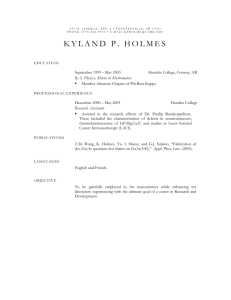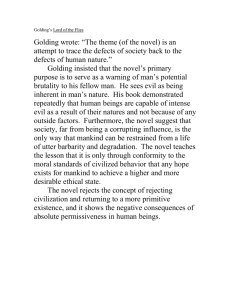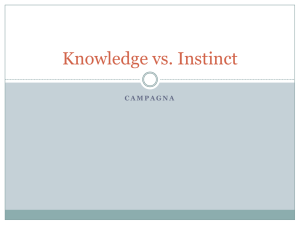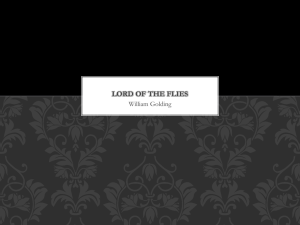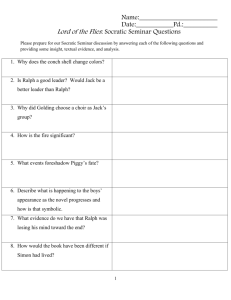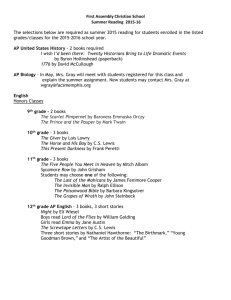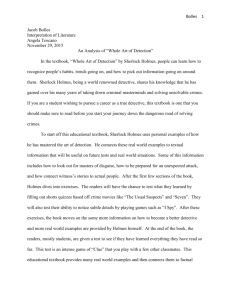here
advertisement
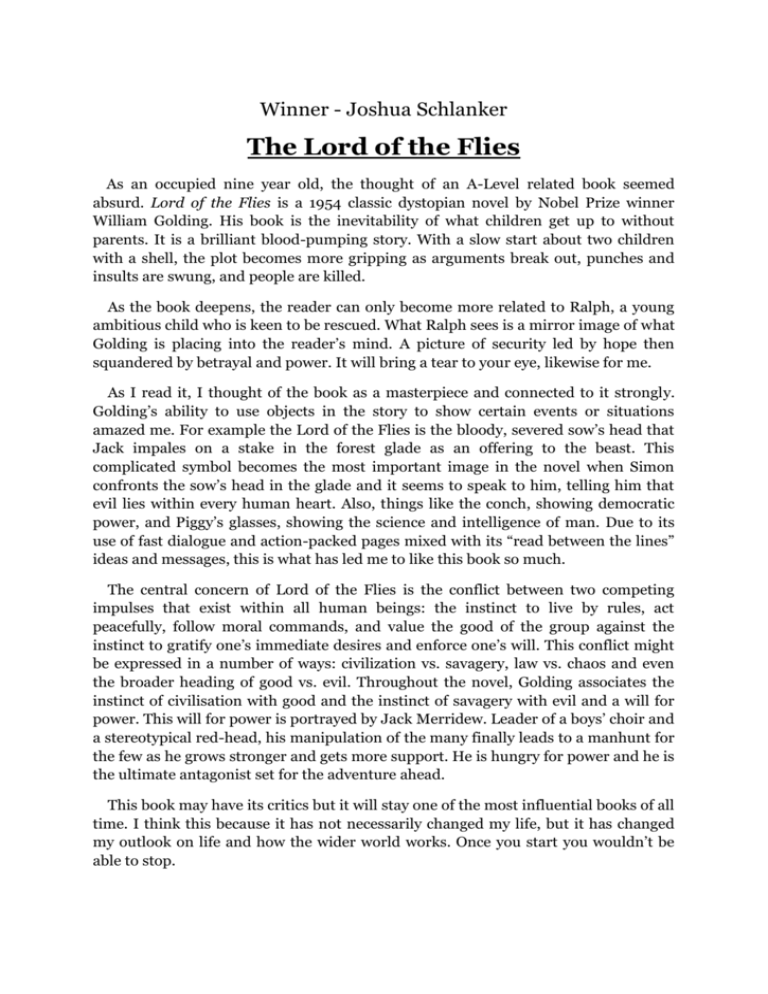
Winner - Joshua Schlanker The Lord of the Flies As an occupied nine year old, the thought of an A-Level related book seemed absurd. Lord of the Flies is a 1954 classic dystopian novel by Nobel Prize winner William Golding. His book is the inevitability of what children get up to without parents. It is a brilliant blood-pumping story. With a slow start about two children with a shell, the plot becomes more gripping as arguments break out, punches and insults are swung, and people are killed. As the book deepens, the reader can only become more related to Ralph, a young ambitious child who is keen to be rescued. What Ralph sees is a mirror image of what Golding is placing into the reader’s mind. A picture of security led by hope then squandered by betrayal and power. It will bring a tear to your eye, likewise for me. As I read it, I thought of the book as a masterpiece and connected to it strongly. Golding’s ability to use objects in the story to show certain events or situations amazed me. For example the Lord of the Flies is the bloody, severed sow’s head that Jack impales on a stake in the forest glade as an offering to the beast. This complicated symbol becomes the most important image in the novel when Simon confronts the sow’s head in the glade and it seems to speak to him, telling him that evil lies within every human heart. Also, things like the conch, showing democratic power, and Piggy’s glasses, showing the science and intelligence of man. Due to its use of fast dialogue and action-packed pages mixed with its “read between the lines” ideas and messages, this is what has led me to like this book so much. The central concern of Lord of the Flies is the conflict between two competing impulses that exist within all human beings: the instinct to live by rules, act peacefully, follow moral commands, and value the good of the group against the instinct to gratify one’s immediate desires and enforce one’s will. This conflict might be expressed in a number of ways: civilization vs. savagery, law vs. chaos and even the broader heading of good vs. evil. Throughout the novel, Golding associates the instinct of civilisation with good and the instinct of savagery with evil and a will for power. This will for power is portrayed by Jack Merridew. Leader of a boys’ choir and a stereotypical red-head, his manipulation of the many finally leads to a manhunt for the few as he grows stronger and gets more support. He is hungry for power and he is the ultimate antagonist set for the adventure ahead. This book may have its critics but it will stay one of the most influential books of all time. I think this because it has not necessarily changed my life, but it has changed my outlook on life and how the wider world works. Once you start you wouldn’t be able to stop. 2nd - George Haddon Sherlock Holmes I am a big fan of reading and I read every night for at least half an hour. When I was asked to write about a book that has changed my life, I thought I would have a nightmare thinking of a book that has changed it but the book I’m reading currently, Sherlock, is the book that stands out most of all. After watching the television series and buying the book in Waterstones, I have fallen into detective land and can’t put this book down for a minute. My mum often tells me to turn my light out at night as I can’t stop reading the tales of the famous consulting detective! The best way for me to summarise this book is probably to re-word the blurb. ‘After the famous Reichenbach Fall, Holmes appeared gone for ever but just because this time he is faced with the deadly Professor Moriatey, he isn’t planning to die just yet! As mysteriously as he departed, he returns with the same lust for solving crimes as he did two years back! Now he and Dr Watson are back in the well-known flat of 221B Baker Street, ready and eager to snap up any mysteries that the thrilling yet dangerous city of London gives them!’ How has this book changed my life? As everybody knows, Holmes can slightly be a bit cocky and impatient when people can’t keep up with his abnormal intellect. Normally, Watson is the person that Holmes gets a bit impatient with as they’re colleagues in solving crimes. Sherlock often says to him ‘You see but you don’t observe’ and that comment struck me that maybe that’s what we all need to do. Now I try to observe better than I used to but a flaw to this is that often observing cannot be as important or helpful than when Holmes observes specific tyre marks in the dirt or a mug with its handle facing to the left. Regularly, you can upset someone or break friendships if you discover secrets or things that someone doesn’t want to share so if I ever do observe something private, I won’t spread it! Reading this book has also encouraged me to watch the news more as Holmes discovers most mysteries by switching on the news. I now watch the news more regularly so I can keep up to date with all exciting, thrilling and devastating news from around the globe. One last thing that I have learnt from this book is to listen much harder to what people have to say as every little thing matters whether it’s to help to catch a criminal or simply to learn new vocabulary in English lessons. Also, it has confirmed to me that no question is silly to ask as if you honestly want to know something, no one can stop you from knowing! I would recommend anybody that is in to crime stories and thinking outside the box to read this book, as Doyle uses both in this gripping yet heart-warming novel! 3rd - Rhys Williams The Boy in the Striped Pyjamas The Boy in the Striped Pyjamas was definitely the book that increased my passion for reading. It gripped my attention from the start to the end and made me want to read on. My favourite part was the relationship between the two main characters, Bruno and Shmuel. It was very sad especially at the end when we find out that Bruno had been taken to the gas chambers. There were also some happy parts when the boys made friends and played together. All around them there was death and misery in the camp and, although they were from different sides, they managed to become best friends. It is the first book I’ve read where I began to understand the different themes an author was using: the contrast between the innocent children from opposite sides being friends against the atrocities being carried out on the prison inmates by German soldiers. Since reading this book my views have changed in many ways. Firstly, I now look for themes and contrasts in other books I read. Also it has affected my interpretation on how we treat each as human beings, making me think about war and the consequences of why we do it along with the human suffering involved with war and the cruelty. The book reminded me of the many lives taken by the Nazis .70 years ago was the liberation of Auschwitz. This has had significant coverage in the media recently and reading the book has allowed me to have a more informed opinion of what happened in German concentration camps. Honourable mentions: Thomas Hotton, Matthew Stevens, Scott Lockie, Will Walker, Xander West, George Harris, Elliot Sanfilippo, Andrew Coker, Ben Mayhew, Ben Shinnick, Jack Wilson, Oliver Clayden-Smith, Adam Oakey, Adam Duffy, Matt Yeoman, Finlay O’Connor.
